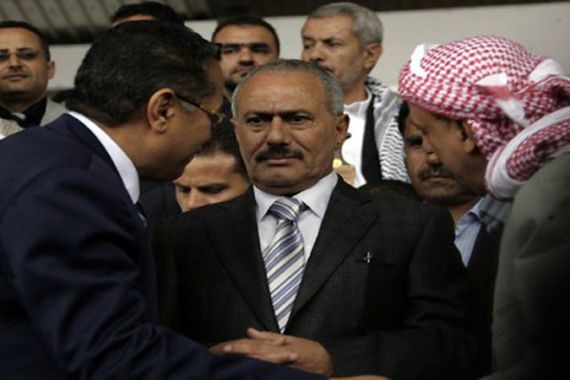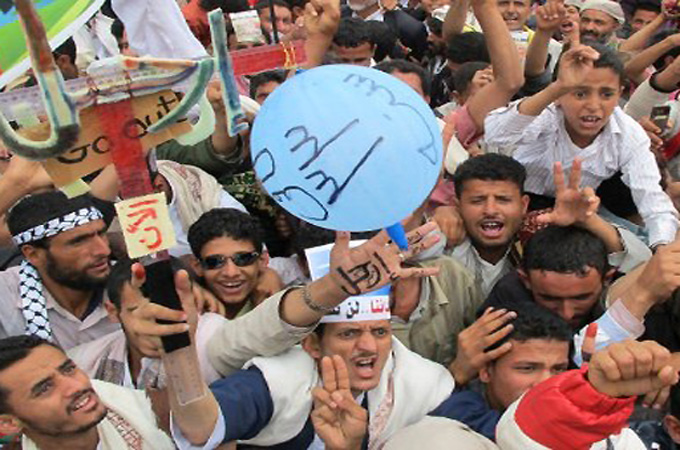Yemen youth call for withdrawal of GCC plan
Groups leading protests to oust president Saleh call for an end to initiatives that ‘alienate’ the Yemeni people.

 |
| At least 140 people have died in the government’s crackdown on the protests [AFP] |
Youth groups leading protests to oust Ali Abdullah Saleh, Yemen’s president, have called on Gulf Arab states to withdraw a plan that has failed so far to remove him from power.
Yemen’s main opposition said the deal, proposed by the Gulf Co-operation Council (GCC) to end months of unrest, had been modified to allow Saleh to sign as party leader rather than president, a condition that nearly derailed the deal last week.
“We call on the leaders of the Gulf Co-operation Council to stop any initiatives that result in alienating the Yemeni people,” the youth groups, under the banner Youth Revolution, said on Saturday.
“We call on the United States, the European Union and the permanent Security Council members to assume their moral responsibility and stop … meddling directed against the will of the Yemeni people to ensure freedom and democracy,” read the statement signed by the Organisational Committee of the Popular Youth Revolution.
Many demonstrators, who include students, tribesmen and activists, have vowed to stay in the streets until Saleh steps down. They are not affiliated with opposition parties, comprised of Islamists, Arab nationalists and leftists, who have co-operated with Saleh in the past.
“People in Yemen are determined to get rid of this regime. Maybe they are waiting for the GCC countries and leaders to put more pressure on the president to step down,” Amin al-Himyari, a specialist in Yemen affairs from Qatar University, told Al Jazeera.
“If the GCC leaders are serious about this, they can put more pressure on him (Saleh) to make him step down.”
Buying time
The plan requires the Yemeni leader – who was until recently backed by Saudi Arabia and the United States as a bulwark against al-Qaeda and regional instability – to resign 30 days after signing.
Saleh, who first indicated he would sign the deal, refused to put his name to it last week, saying he should do so as party leader, not president.
Critics saw Saleh’s refusal to sign as president as a clear sign that the shrewd political survivor had no intention of stepping down quickly.
“I don’t think [Saleh] is serious in accepting any proposals, he is just gaining time,” Al Himyari told Al Jazeera.
Sceptical opposition leaders said on Friday it appeared the GCC had acceded to demands by the ruling party.
Gulf Arab states including Saudi Arabia, Yemen’s neighbour, are eager to see peace return to Yemen, a poor state struggling to deal with internal rebellion and home to al-Qaeda’s active Arabian Peninsula branch.
At least 140 people have died in the government’s crackdown on the protests, which have nonetheless grown in number week after week.